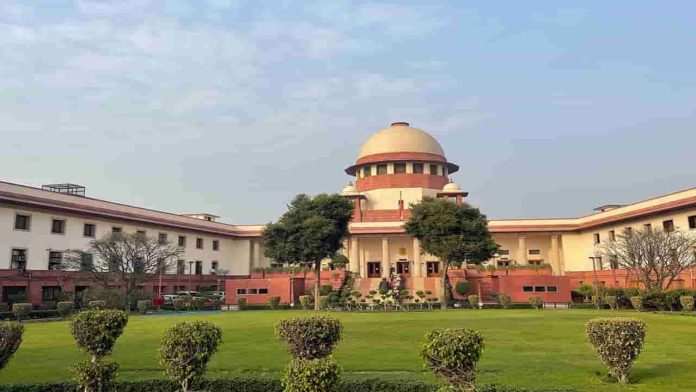The Supreme Court on Wednesday directed the Central government and the Reserve Bank of India (RBI) to file response on petitions challenging the 2016 demonetisation of high-value currency notes.
While stating that it was aware of the ‘Laxman Rekha’ on how far the Apex Court could go on challenges regarding the government policy decisions, the Apex Court said it will still hear the petitions.
The Constitution Bench of Justice Abdul S. Nazeer, Justice B.R. Gavai, Justice A.S. Bopanna, Justice V. Ramasubramanian and Justice B.V. Nagarathna was hearing 58 petitions, which challenged the government decision to ban currency notes in the denomination of Rs 500 and Rs 1000.
The Apex Court directed the Reserve Bank of India to produce the documents related to RBI Board meetings ahead of the announcement of demonetisation.
Listing the matter for November 9, the top court of the country told the Centre to keep ready the files about the decision to ban currency notes in the denomination of Rs 500 and Rs 1,000, which comprised over 80 per cent of all notes in circulation during 2016.
Earlier on September 28, the court said it needs to examine whether the matter has become academic, as six years have passed since the Central government took the decision on the night of November 8, 2016.
Section 26(2) of the Reserve Bank of India Act does not authorise the Union of India to completely cancel currency notes of particular denominations.
The petitioners argued that Section 26(2) empowered the Centre to cancel currency notes of a particular series and not the entire currency notes.
Senior Advocate and former Finance Minister P. Chidambaram contended that this kind of demonetisation required a separate act of Parliament. A similar demonetisation was carried out in 1978.
Chidambaram further said that RBI should have made the recommendation for demonetisation with facts and research to the government, for consideration. However, the process was reversed in the present case.
Solicitor General Tushar Mehta argued that the court’s time should not be ‘wasted’ on academic issues.
To this, Advocate Shyam Divan, appearing for one of the petitioners, said he was surprised at the phrase ‘waste of Constitutional Bench’s time’.
According to Chidambaram, the objects of demonetisation were to take out currency notes not in use and extinguish liability, or to replace worthless currency notes in cases of hyperinflation with new currency of worth.
He cited the RBI notification and said the objectives pointed out in this case were fake currency, black money, and fake currency used for terror funding. They added corruption later, but the RBI notification spoke about these three reasons, noted Chidambaram and added that none of these objectives were achieved.


